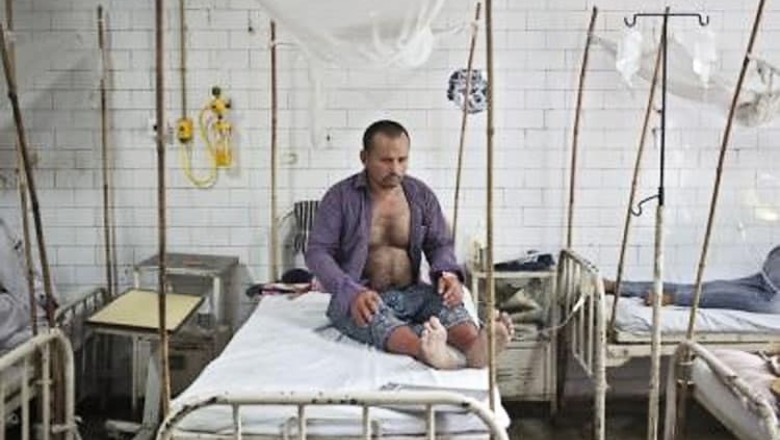
views
Mumbai: Asia's largest vaccine maker, Serum Institute of India, plans to file for fast-track approval to launch a dengue treatment in India, its chief executive said, potentially becoming the first company globally to launch a drug for the mosquito-borne virus.
Serum's plans come as India battles soaring death rates from dengue and its capital New Delhi faces the worst outbreak of the virus in five years, exposing inadequate public health measures to combat the disease.
Dengue is common in India and cases generally peak in October, after the monsoon rains. It is one of the biggest causes of hospitalisation and death among children in India.
Serum bought exclusive rights from US biotech Visterra to sell its innovative monoclonal antibody, VIS513, as a treatment for dengue in the Indian subcontinent in a deal worth up to $39 million, both companies said earlier this month.
Serum, owned by the billionaire Cyrus Poonawalla, has sought the Indian government's approval to import the antibody and conduct clinical trials in India, its Chief Executive Adar Poonawalla said in an interview.
Visterra has tested the antibody on animals so far.
"Once you inject this into a patient who has dengue, they should show a result within three or four days, or even sooner," he said. "It won't be a normal vaccine trial that needs to go into thousands of thousands of patients to prove its safety and efficacy."
Approvals to launch new drugs generally take about three to four years in India, Poonawalla said.
"We are trying to make that into a year or maximum a year and a half if we can get quickly the permissions and do a trial to prove that the virus is being neutralised in humans."
Except for a dip in 2011, the number of dengue cases in the country has been steadily rising since 2007, according to the World Health Organisation.
There is no dedicated treatment for the virus, and infected patients are generally asked to rest, drink fluids, and take paracetamol to bring down fever and reduce joint pains.
"We would have to wait to see how the drug reacts in humans, as it has only been tested in animals so far," said a senior virologist with a government research institute, declining to be named.
"There are other companies globally developing therapeutic antibodies."
There is no vaccine for dengue available in the market, but there are some undergoing clinical trials. French drugmaker Sanofi SA hopes to win approval for the world's first dengue vaccine soon.
Serum, the world's fifth-largest vaccines maker by volume, will price its dengue treatment at between Rs 5,000 ($75.85) and Rs 10,000 per injection with expected annual sales of at least 500 million to Rs 1 billion, Poonawalla said.




















Comments
0 comment